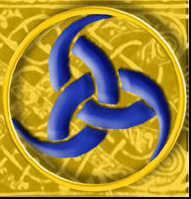
Terms of
Use
Submissions
~ Historical & Classical Poetry ~
The Saxon War Song
Whet the bright steel,
Sons of the White Dragon!
Kindle the torch,
Daughter of Hengist!
The steel glimmers not for the carving of the banquet,
It is hard, broad and sharp pointed;
The torch goeth not to the bridal chamber,
It steams and glitters blue with sulpher.
Whet the steel, the raven croaks!
Light the torch, Zernebrock is yelling!
Whet the steel, sons of the Dragon!
Kindle the torch, daughter of Hengist!
The black clouds are low over the thane’s castle:
The eagle screams-he rides on their bosom.
Scream not, grey rider of the sable cloud,
Thy banquet is prepared!
The maidens of Valhalla look forth,
The race of Hengist will send them guests.
Shake your black tresses, maidens of Valhalla!
And strike your loud timbrels for joy!
Many a haughty step bends to your halls,
Many a helmed head.
Dark sits the evening upon the thane’s castle,
The black clouds gather round;
Soon shall they be red as the blood of the valiant!
The destroyer of forests shall shake his red crest against them;
He, the bright consumer of palaces,
Broad waves he his blazing banner,
Red, wide, and dusky,
Over the strife of the valiant;
His joy is the clashing swords and broken bucklers;
He loves to lick the hissing blood as it bursts warm from the wound!
All must perish!
The sword cleaveth the helmet;
The strong armour is pierced by the lance:
Fire devoureth the dwelling of princes,
Engines break down the fences of battle.
All must perish!
The race of Hengist is gone-
The name of Horsa is no more!
Shrink not then from your doom, sons of the sword!
Let your blades drink blood like wine;
Feast ye in the banquet of slaughter,
By the light of blazing halls!
Strong be your swords while your blood is warm.
And spare neither for pity nor fear,
For vengeance hath but an hour;
Strong hate itself shall expire!
I also must perish.
Sir Walter Scott (1771-1832)